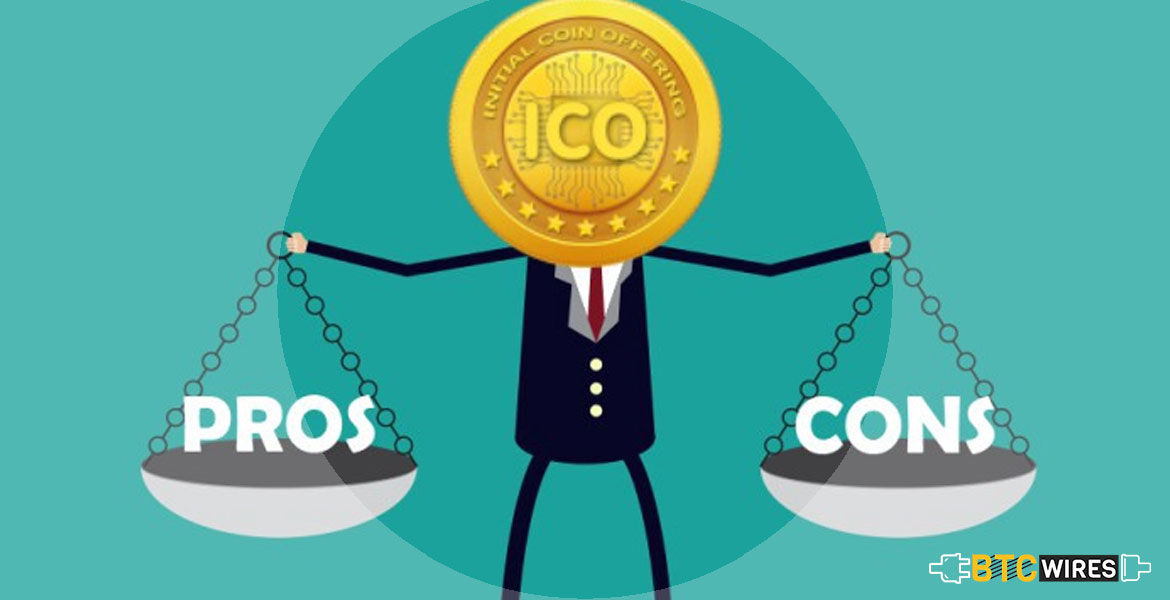An ICO or an Initial Coin Offering is a type

An ICO or an Initial Coin Offering is a type of funding used by cryptocurrencies, where a quantity of cryptocurrency is sold as token to the investors in exchange for other cryptocurrencies or legal tenders. Here, users receive these tokens for the new cryptocurrency, and the value of these tokens fluctuate depending on the amount of investment the ICO receives.
Now, as is with everything, ICO also has its set of pros and cons.
Pros:
- ICO has a massive potential for returns, and there are recent cases where ICOs have created a number of massive returns, in a very short span of time. For example, Stratis raised 600,000 USD, during their ICO in June of 2016, and has had a 63000 per cent rise since.ICO gives the investor full opportunity to invest in enterprises with potential, at a very formative stage with a minimal investment, and then get a good revenue in return, once the stakes are up.
- ICOs have a shorter time horizon when it comes to returns. Since ICOs are public and anyone can invest in them, there is a higher potential for the total amount of money raised, as compared to venture capitals, the knowledge of which remains restricted to only a limited number of people.
- There is a scope of increased liquidity and equity when it comes to ICOs. Unlike venture capitals, where shares of the company are traded for funds, ICOs trade tokens for funds, which means that founders get to keep the entirety of the company and can automatically have more control over the finances of the company.
- Accessibility is much better when it comes to investing through ICOs as they provide an equal opportunity and ease of access.
- ICOs have a clear direction for execution as the investor knows exactly what the network is and will be doing, and thus it is easier to evaluate the product-market, and subsequently, use that knowledge to his/her own benefit.
- ICO demonstrates globalization, as it abolishes the very concept of geographical boundaries, any and everyone can access and invest through ICOs.
- No taxes or commisions are necessary as ICOs are not controlled by any governments. ICO promises anonymity and independence.
Cons:
- The risk with ICOs is that they are more volatile even when compared to a stock market or even a real estate. Major fluctuations in the crypto market and in the ICO value is quite common.
- Potential network stall could be another issue, as the real value of this depends on how many people are willing to use the platform. Failing to attract users will result, most imminently in a drop in the prices.
- Another notable problem is the possible shortage of resources that might occur if a cryptocurrency ICO does not raise enough money, or the startup ends up spending more money than was predicted or expected.
- Scams are another problematic are for ICOs, as in most cases the coins that an investor is buying, is for a project, that has not yet fully matured. And it is almost always impossible to know whether the project will be completed or not.
- ICOs are also prone to oft reported to hacker attacks.
It is true that cryptocurrency ICOs offer many benefits as opposed to Venture Capitals. However one needs to do a lot of research and educate themselves properly, before investing ICOs.
